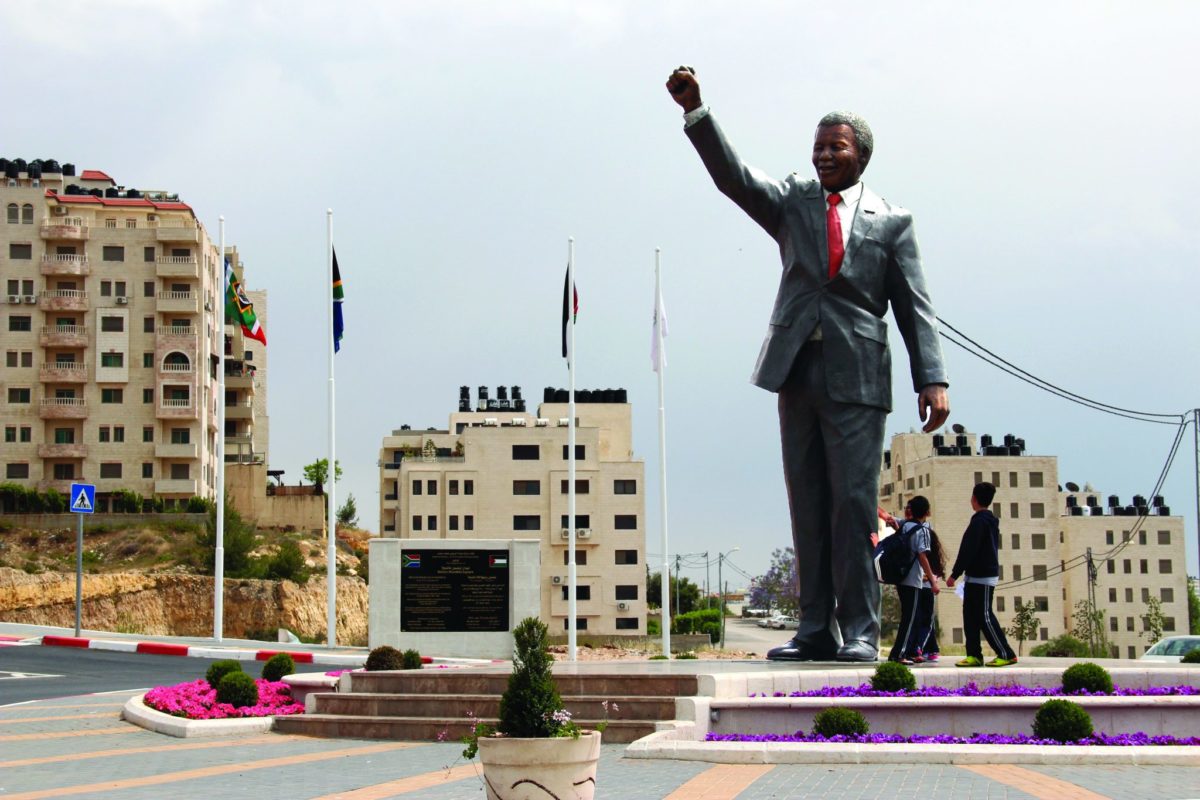Any visitor to Palestine is guaranteed a few things. Delicious deep-fried balls of ground chickpeas inside pita bread, the call of the muezzin five times a day, a permeating strong smell of black coffee through a cacophony of hooting cars and shouting in Arabic. And getting lost.
Driving, especially through the bustling streets of the de facto capital Ramallah, is a nightmare. Not because the roads are particularly unsafe but because assistance comes in the form of no street names, no street signs and no house numbers. A colleague of mine spent the better part of a year paying the wrong electricity bill because, well, he couldn’t read Arabic and the bill kept arriving under his door. It turned out to be for another apartment in another street – neither his street nor apartment were named or numbered!
Only in the last seven years, following the Ramallah centenary celebrations, have street names caught on in the growing metropolis. Yasser Arafat, former chairman of the Palestine Liberation Organization, now has his square and dozens of Palestinian fighters have their streets. The criteria are simple – heroes, places and ideas supported by the Palestinian people.
So it’s no surprise that South African anti-apartheid icon Nelson Mandela has been given his spot – if anything, the surprise is that it took so long. But residents say it was worth waiting for. The east of the city is now nestled in the shadow of Madiba’s towering figure – a six-meter, two-ton bronze statue with right fist raised.
The statue is the first of its kind outside South Africa and took artists Christina Salvodi, Lungisa Khala and Tanya Lee seven months to create – and another 30 days to get through Israeli customs. But that’s nothing, muses Ramallah’s Mayor Mussa Hadid, compared to the 27 years Mandela spent in prison.
“The erection of Mandela’s sculpture in Ramallah carries a symbolic significance,” he says. “Mandela was an international symbol of peace and a torch to people striving for freedom and liberty.”
A staunch supporter of the Palestinian struggle against Israel, Mandela once declared that, “We know too well that our freedom is incomplete without the freedom of the Palestinians.” It’s a view he repeated after warmly embracing Arafat in their first meeting in Zambia after his release in 1990.
“Like us, he is fighting against a unique form of colonization,” Mandela said of the Palestinian leader at the time, “and we wish him success in his struggle.”
Mandela is revered across the Arab and Palestinian world. The square now boasting his name is in a quiet part of the city and traffic here slows down to circle around his statue so drivers can get a good glance – looking upwards – of their hero. If you stand on tiptoes it’s almost possible to reach up high enough to touch his left hand.
Mamoun, a 19-year-old engineering student who lives not far from the now aptly renamed Mandela Square, exclaims, “He is our hero and it’s only right that a man who stood for the fight against oppression, now stands tall and proud in our city!”
Amira is another Ramallah resident who believes the square bearing Mandela’s name will become a major tourist attraction in her city.
“I am so excited that we have our own Mandela in Ramallah now,” she smiles. “Our struggle is like the struggle of South Africa – and hopefully he can watch over us just like he watched over his own people.”
Mandela’s relationship with Israel was more complicated. He was a firm supporter of the right of Jews to a national homeland, but he never forgot Israel’s support for the apartheid regime during the 1970s and 80s.
“We insist on the right of the State of Israel to exist within secure borders,” he remarked in 1993, but “with equal vigor” stressed support of “the Palestinian right to national self-determination.”
Mandela didn’t visit Israel during his presidency but agreed to receive an honorary doctorate from one of the country’s universities shortly after leaving office. He used the opportunity to impress upon the then newly elected Israeli Prime Minister Ehud Barak his concern about the conflict with the Palestinians and the failure of the Oslo peace process.
Israelis, like most people in the world, hold Mandela in high esteem but unsurprisingly, whereas the ceremony to unveil his statue in Ramallah received much attention in the South African and Palestinian press, it was hardly mentioned in the Israeli media.
Speaking at the inauguration, Johannesburg’s Mayor Parks Tau, who presented the statue as a gift from his city said, “Nelson Mandela himself would have been extremely proud of what has been done here today.”
